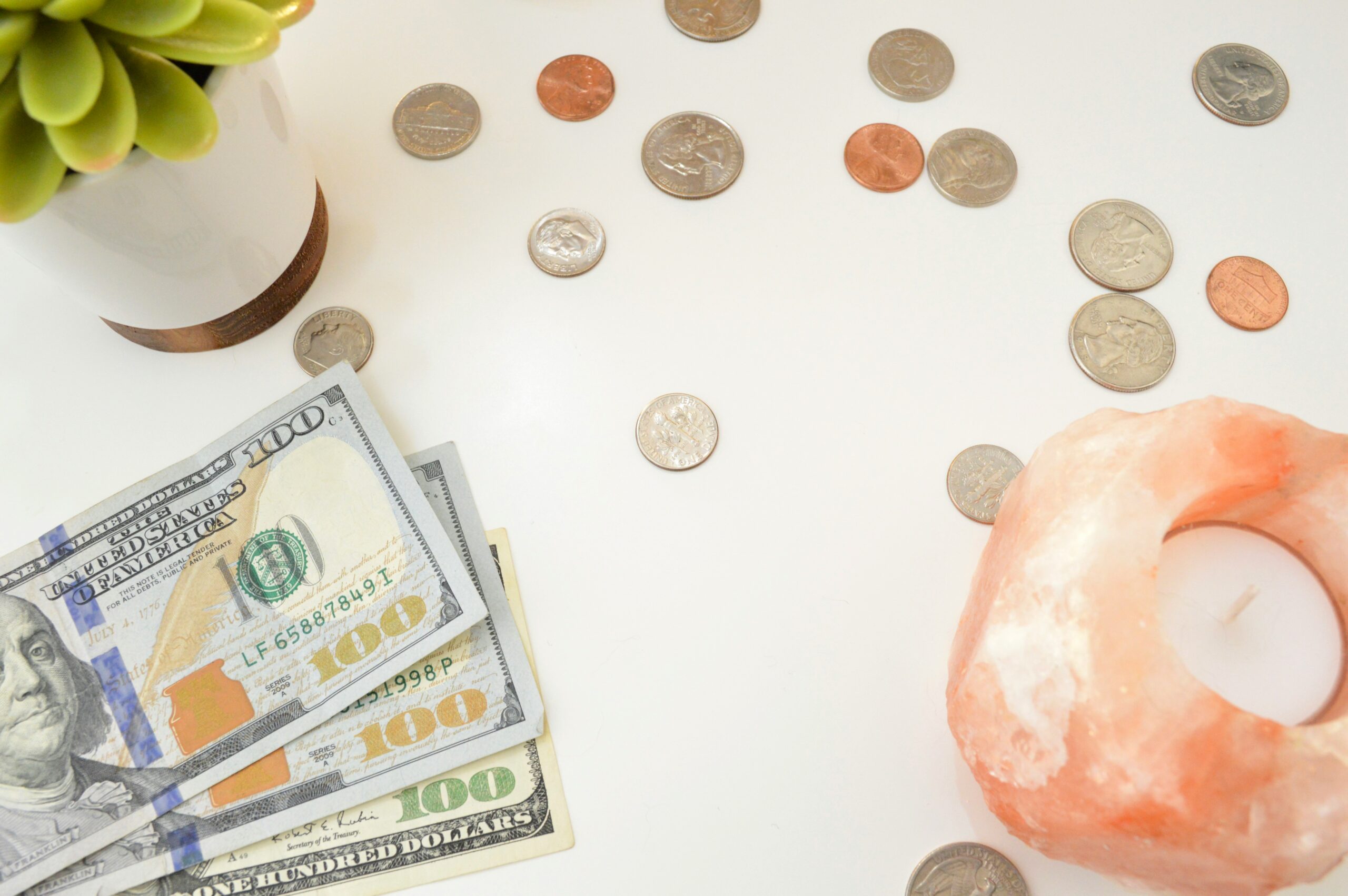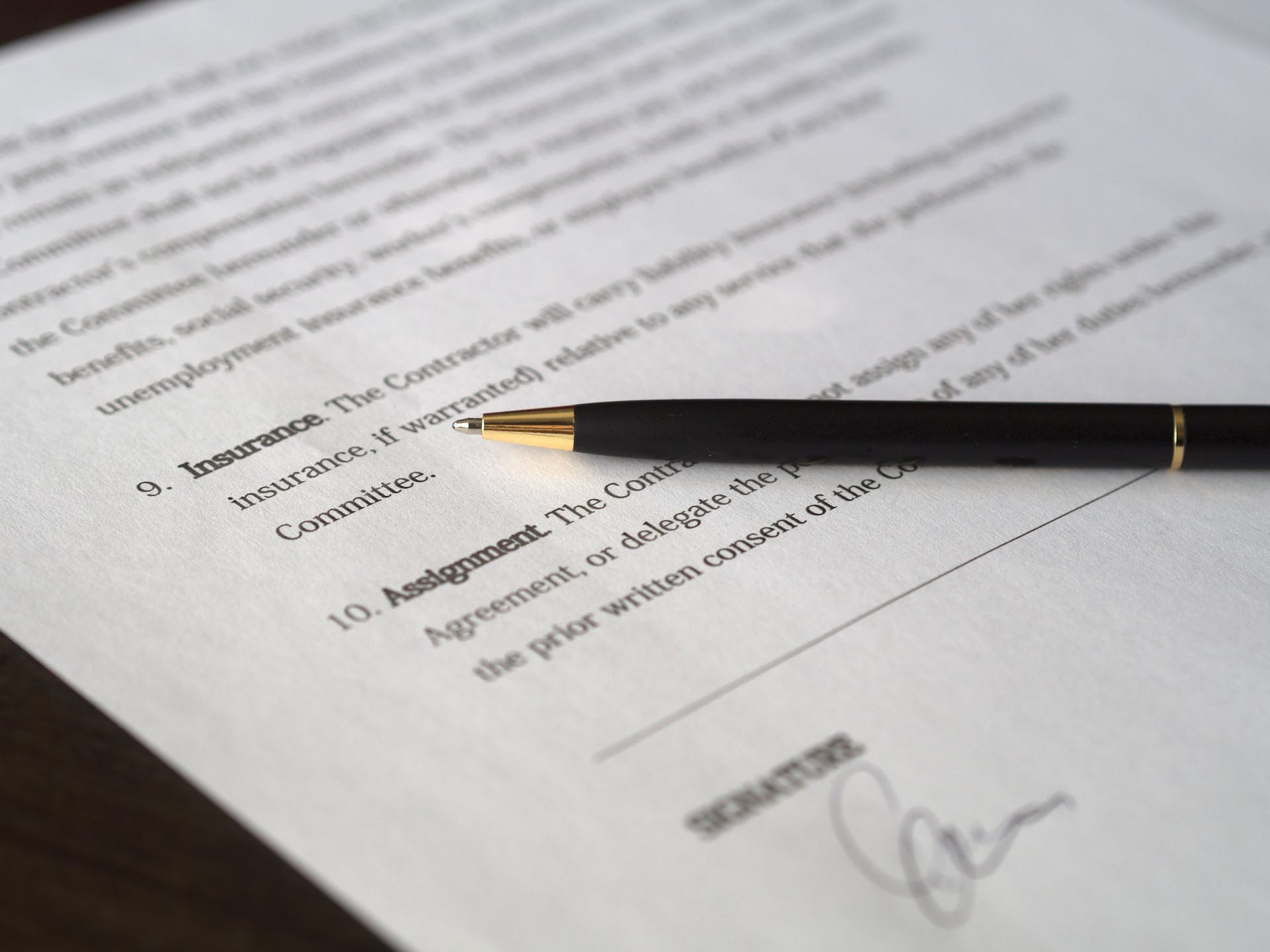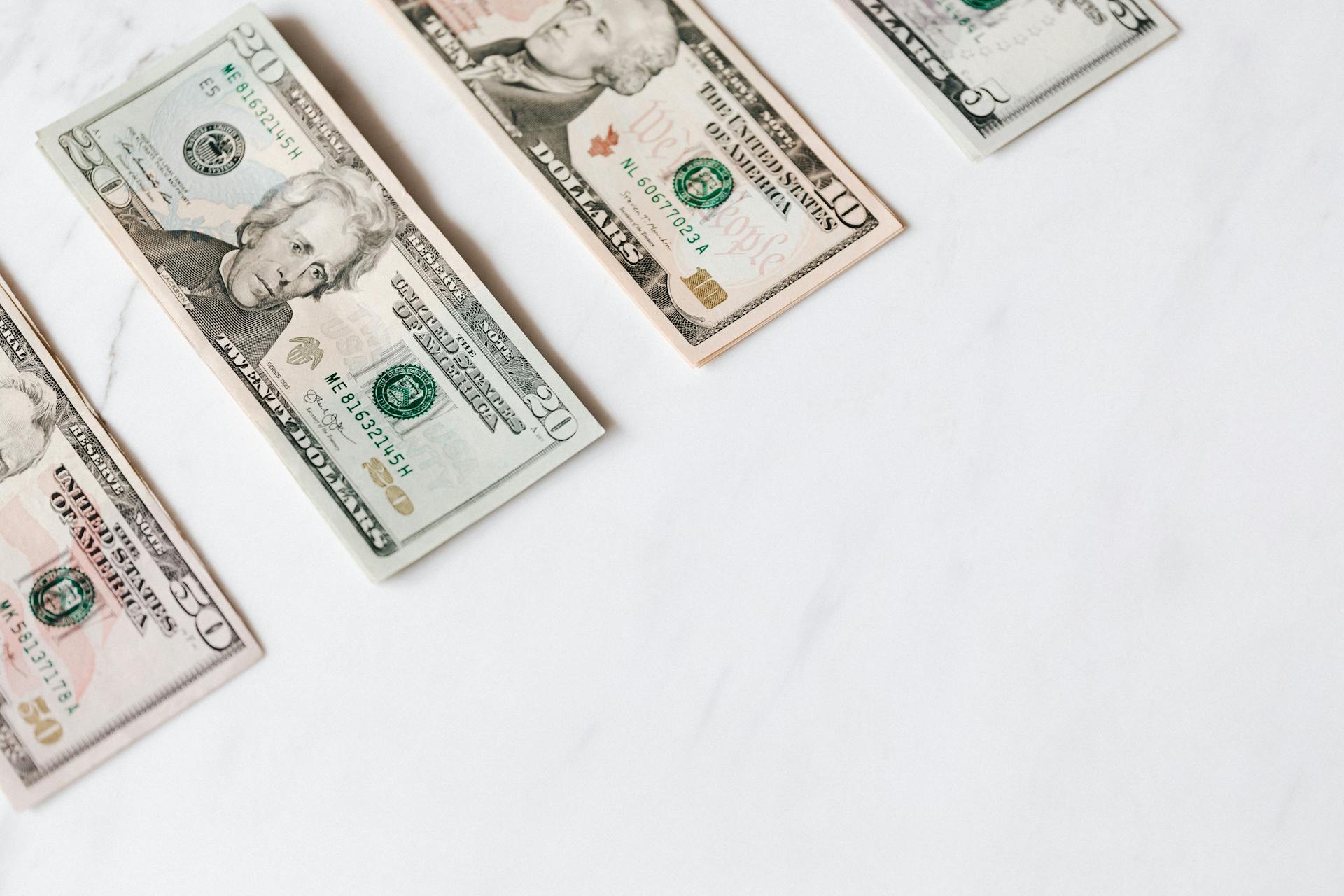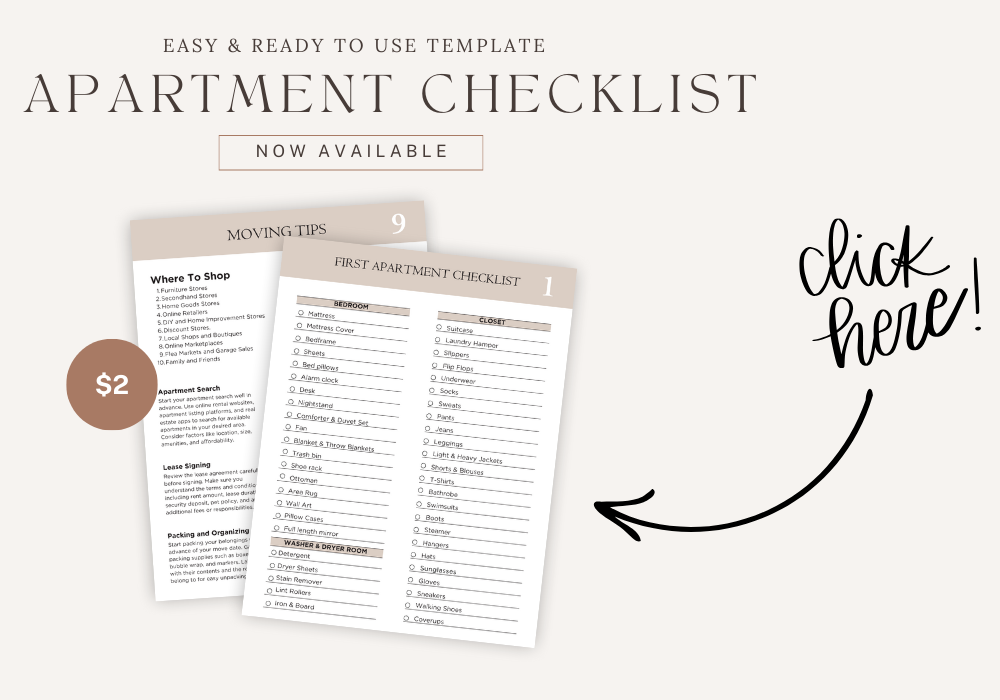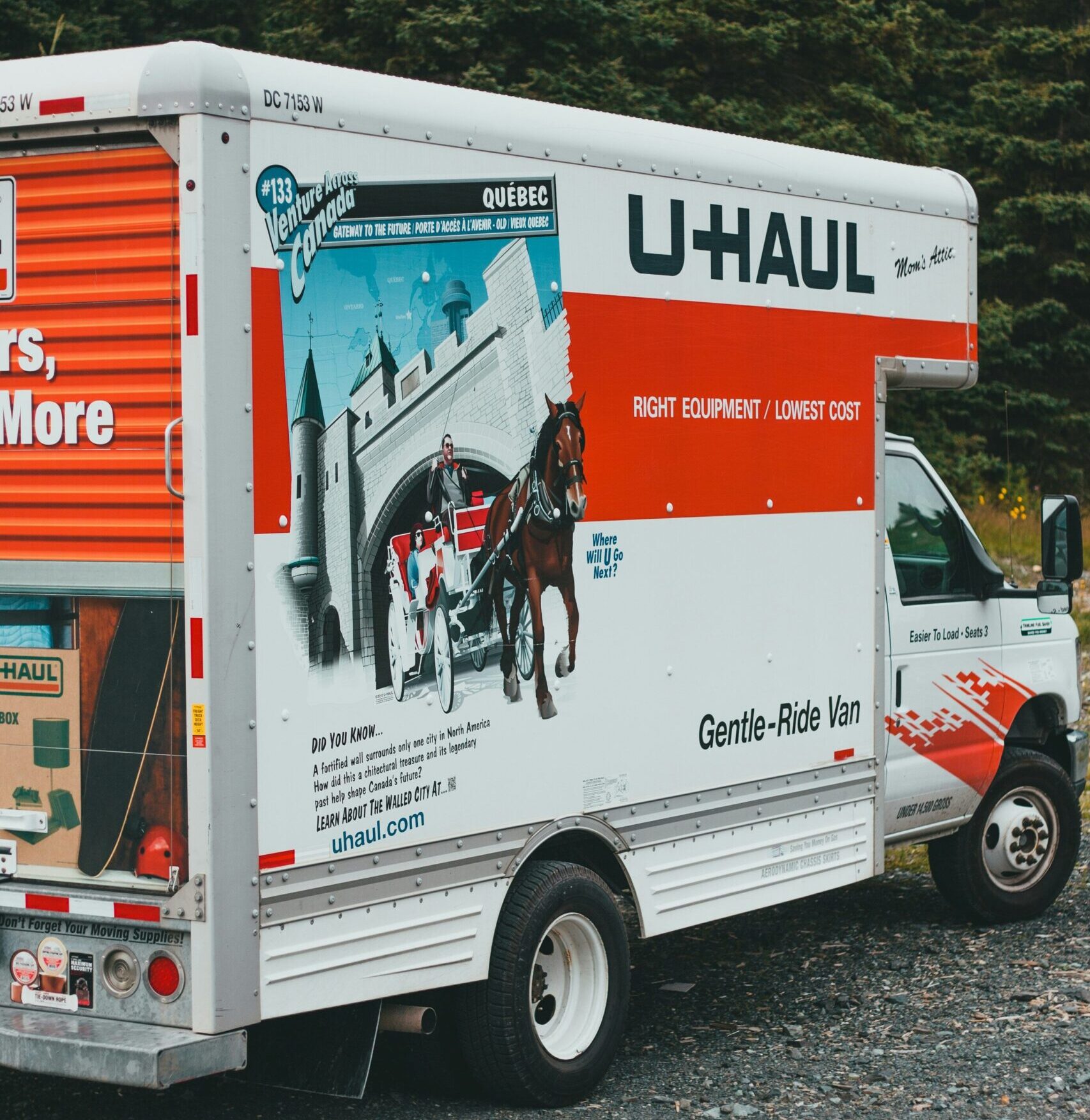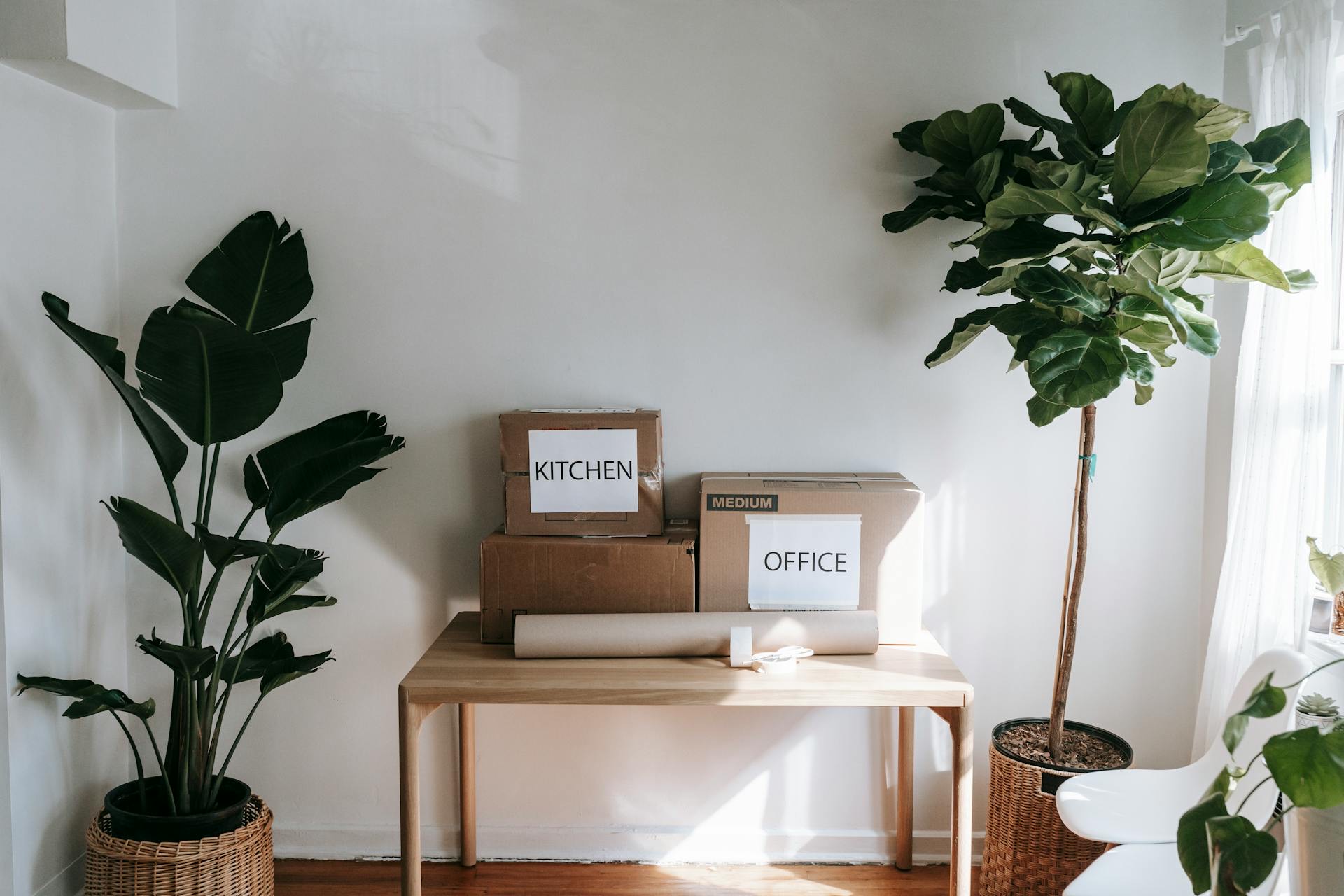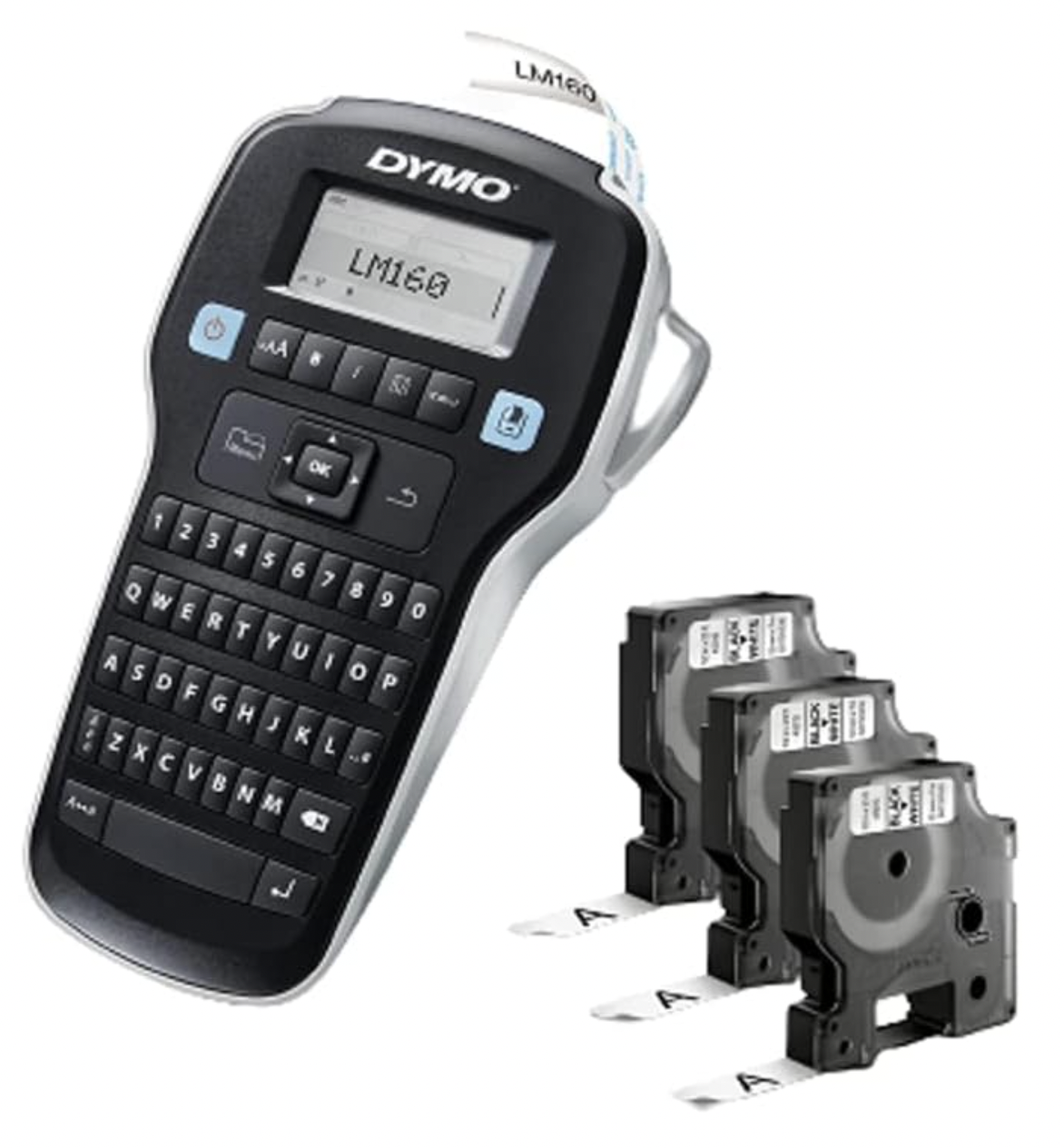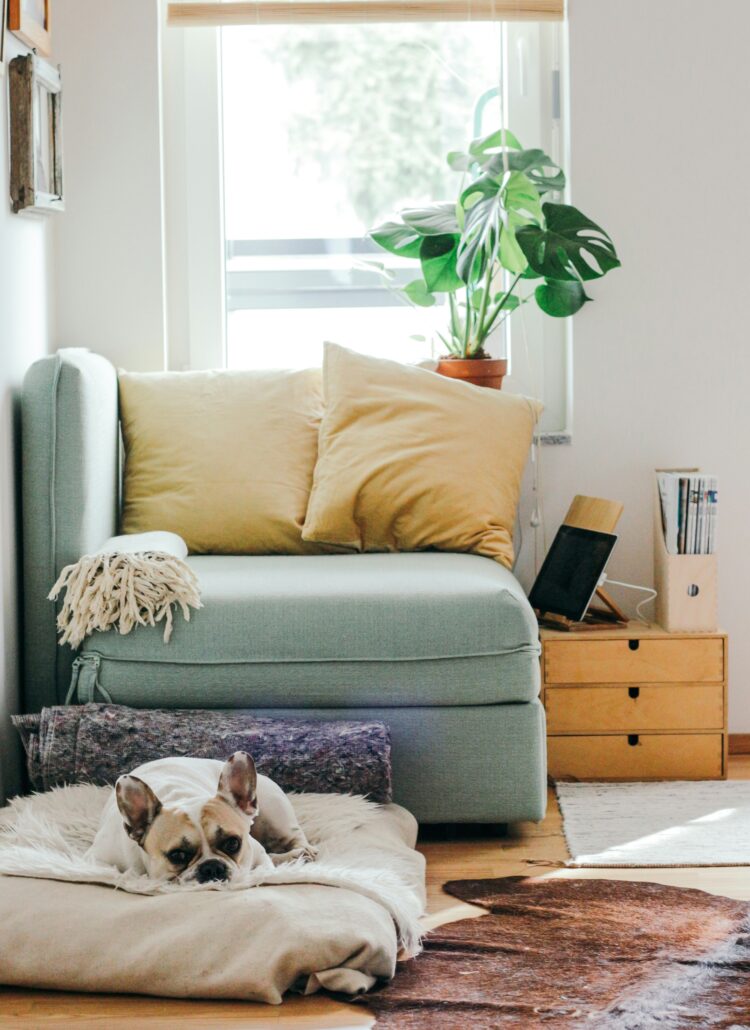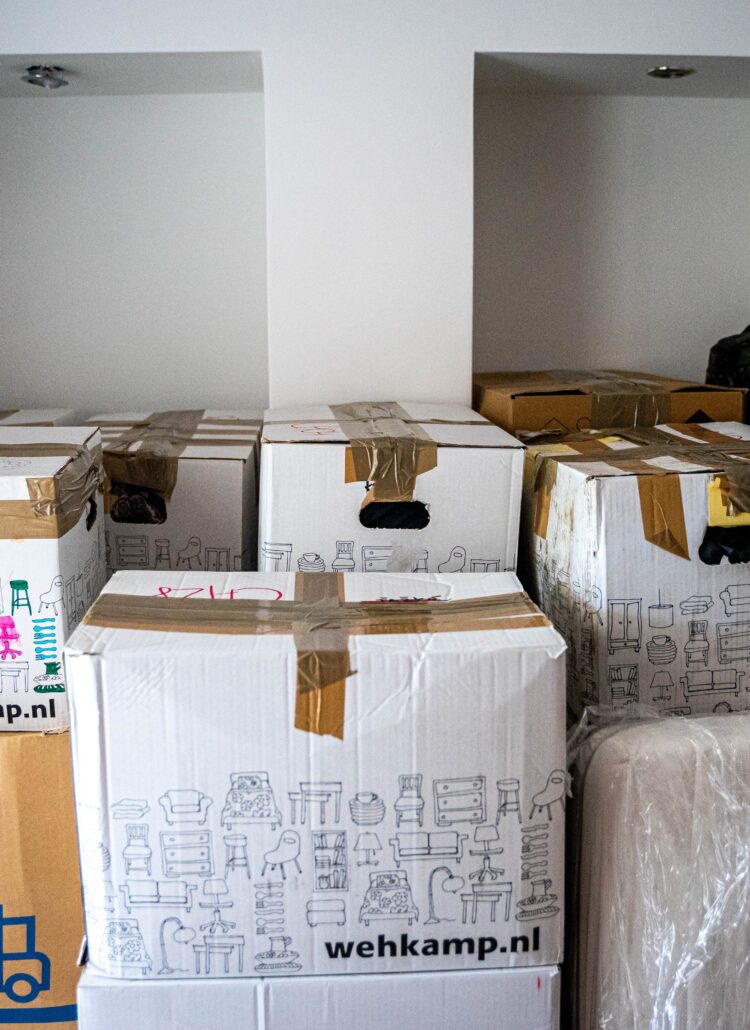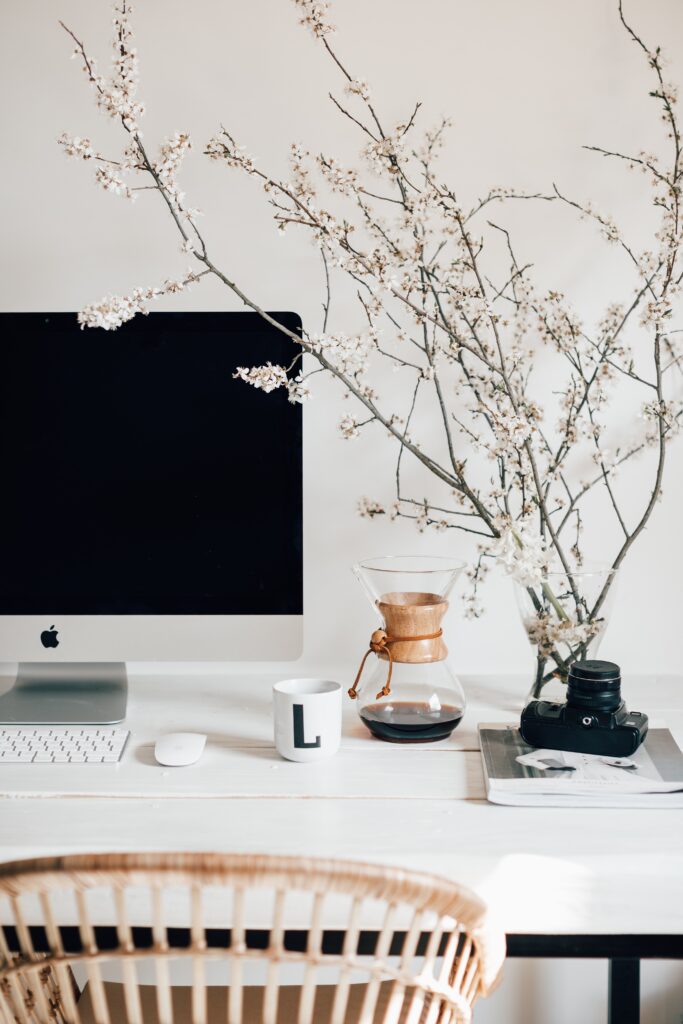Read through this post so you can prevent making the same mistakes I did.
This post lists mistakes I regret making before renting my first apartment!
This post may contain affiliate links you can read the full disclaimer here for more information.

Renting your first apartment yourself can be so exciting. Although my research was extensive and efficiently planned, there were a few mistakes I regret making before renting my first apartment.
After years of living with other people, I decided I was ready to live in my own apartment.
As soon as I moved out of my parent’s house I lived in student housing with roommates.
I think college was a great way for me to become comfortable living away from my parents, but it didn’t have the same effect as getting my first apartment by myself.
When I could finally afford to rent my first apartment I spent days researching the most important tips to living alone.
So many things go into living alone, so it’s easy to become overwhelmed.
I have a very Type A personality, so I made spreadsheets on what I could afford, what to purchase for the apartment, my timeline of when I could move in, how much a moving company would be, etc.
I’m grateful for all of the preparation that I did, but of course, you can’t prepare for everything, even if you’re Type A (I know that’s scary to hear).
The best teacher is through experience, not through reading hundreds of articles!
If you’re moving into a new apartment here are my best tips to ensure that you are prepared as much as possible.
All of these mistakes are things I would go back and tell my past self to make the moving process & experience much easier!
5 Mistakes I Regret
1. Overlooking Hidden Costs For Renting My First Apartment
Great! You’ve found out what your budget is for your first apartment. But you need to account for hidden costs beyond the monthly rent.
Here are some hidden costs that you may overlook when renting your first apartment
- Security Deposit: A security deposit is usually required when moving into a new apartment. A security deposit can be equal to one or two months’ rent Keep in mind that if you’re a first-time renter it may be equal to two month’s rent. Always double-check with your landlord.
- Application Fees: Application fees cover the cost of processing your rental application. These fees can vary and may not be refundable, regardless of whether your application is approved.
- Renter’s Insurance: Renter’s insurance is required for many tenants. This covers your personal belongings in case of theft, fire, or other damages. The cost of renter’s insurance varies depending on factors like coverage limits and location.
- Internet and Cable: You’ll need to set up your internet accounts with service providers and pay for monthly subscriptions. To set my internet up I had to call a service provider to come to my apartment.
- Utilities: Some apartments include utilities like water and trash collection in the rent, others require you to pay for them separately. Ask the property manager how much utilities are so you can factor them into your budget.
- Pet Fees: Your landlord may charge fees such as pet deposits, pet rent, or non-refundable pet fees. You can also waive this cost if you have an ESA animal. Some websites provide information on how to register your animal as an ESA so you don’t have to pay pet fees.
- Parking Fees: If your apartment doesn’t include parking or if you need additional parking spaces, you may have to pay extra for them. This could be in the form of monthly parking fees or a one-time parking permit fee. For my apartment, the parking garage is included in the rent.
2. Being too closed-minded with what I wanted
Before apartment hunting, I had so many ideas on what kind of apartment I wanted.
I wanted an apartment in a great location, that had cool amenities, a parking garage, a pool, a gym, etc! I wanted the perfect apartment!
After living in my apartment I realized that I barely used any of the amenities.
Only looking for apartments that checked everything off of my must-haves list caused a short list of more expensive apartments.
It’s important to have a list of must-haves for your apartment, but ask yourself if you can compromise on anything on your list.
The apartment I moved into was not on my list to tour because it didn’t include one of my must-haves but after I saw it in person I fell in love and decided to compromise.
For example, the apartment you toured is amazing but doesn’t have a washer & dryer, is there a laundromat that is near it?
Your apartment doesn’t have a pool or gym, but why not get a membership at a gym?
Make a list of all of the qualities you want your apartment to have. Rate these qualities from 1-10 in importance.
1 for not important at all and 10 for nonnegotiable.
If anything falls between 1 and 6, see if you can compromise on this must-have because most likely you can do without it!
3. Not Budgeting Properly Before Renting My First Apartment
Budgeting properly for your first apartment involves careful planning and consideration.
Make a list of all your monthly expenses, including fixed expenses (such as rent, utilities, insurance, and loan payments) and variable expenses (such as groceries, transportation, entertainment, and personal care).
Put them in a spreadsheet or even use the MINT app to help you track your income & expenses.
Allocate a portion of your income to each expense category, ensuring that your total expenses do not exceed your total income.
Prioritize essential expenses such as rent, utilities, groceries, and transportation.
Allocate a larger portion of your budget to these necessities to ensure they are covered each month.
Estimate variable expenses based on your past spending habits or use averages if you’re unsure.
Be realistic but also look for areas where you can potentially reduce costs, such as cutting down on shopping or eating out.
Always set aside a portion of your income for savings goals, such as an emergency fund, retirement savings, or future large purchases.
Aim to save at least 10-20% of your income each month, if possible.
Unexpected expenses may arise, so it’s essential to have an emergency fund and to be flexible with your budget.
4. Not researching different moving companies
Researching moving companies before renting my first apartment was crucial for a smooth moving process.
Don’t just pick one, call at least 4 that are highly rated & priced within your means.
Different moving companies offer various pricing services.
It’s a good idea to compare quotes and choose a company that fits your budget.
If you’re stuck between two companies let them know that one company is offering you a lower amount, they could match their pay! (this is what happened to me).
You want a moving company you can trust to handle your belongings with care and deliver them safely to your new apartment.
Accidents can happen during a move, leading to damage or loss of your belongings.
Make sure you understand the insurance options they offer and choose a company that provides adequate coverage for your needs.
Make sure you’re moving your most valuable items on your own.
Before I hired a moving company I packed a few bags of items that were too valuable for me to trust with movers, and I took them to my new apartment myself.
You may need specialized services such as packing, storage, or transportation of fragile items.
Make sure you ask about these specific services. I hired movers to pack & wrap everything for me, which saved me a lot of time.
Good customer service can make the moving process smoother and less stressful.
While interviewing these companies gauge their responsiveness, professionalism, and willingness to address any concerns or issues you may have.
5. Not Labeling Moving Boxes
One of my biggest mistakes was not labeling my moving boxes! Labeling moving boxes for your first apartment is important to do so everything is organized properly.
I spent so much valuable time opening up multiple boxes to find 1 item!
When you label boxes you will be able to easily identify the items in each box.
This will make it simpler to unpack and locate specific items once you’ve moved into your new apartment.
Knowing what’s inside each box helps you prioritize unpacking based on your immediate needs.
You can start with essential items and gradually unpack the rest throughout the week.
Store some boxes that aren’t that important in a storage closet. This way they are not taking up too much space in your apartment.
Labeling boxes with fragile items can also help to alert movers to handle them with care.
It reduces the risk of damage to delicate belongings during transportation.
Label the boxes with the room they belong to (kitchen, bedroom, bathroom, etc.)
This way you know exactly where each box should go in your new apartment.
This streamlines the unloading process and prevents boxes from being misplaced.
I recommend buying this DYMO label maker for labeling your boxes. This label maker is lightweight & portable.
You can choose from choose from 20+ ways to format text and 200+ symbols and clip art allows for personalization.
While it’s natural to feel regretful about certain decisions, I’m glad I went through this experience.
It was so hard moving across the country by myself at 24, but I learned so much and I’d do it again!
You can use my experience to set yourself up for an easier and smoother moving process.
If you’re still shopping for some first apartment essentials you will enjoy this article of mine for Forgotten First Apartment Must-Haves You Actually Need.
While you are preparing for moving into your new apartment here are some Questions You Can’t Forget Before Moving Into Your First Apartment.
This post listed mistakes I regret making before renting my first apartment!
